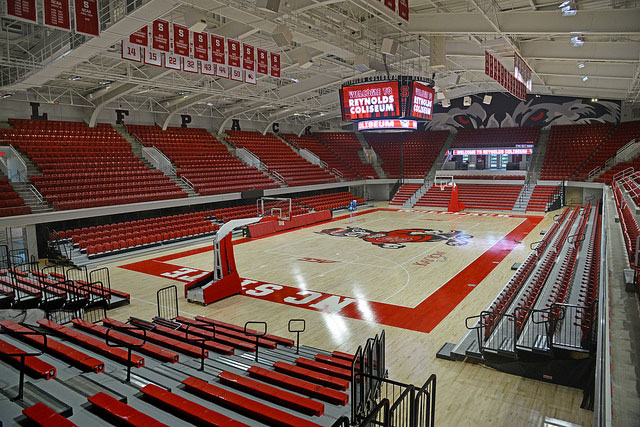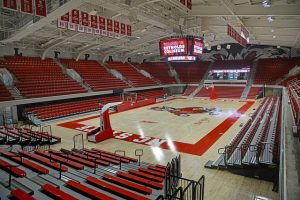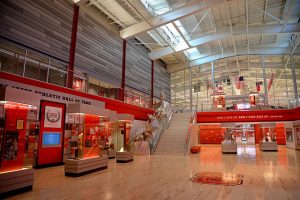Reynolds Coliseum Achieves LEED Silver For Sustainability


NC State University’s recent renovation of its Reynolds Coliseum has earned national sustainability certification from the U.S. Green Building Council.
Reopened in September 2016 following a 16-month renovation, the building achieved Leadership in Energy and Environmental Design (LEED) certification at the Silver level in March 2017.
The 186,000-square-foot multipurpose arena originally opened in 1949 and is one of campus’ nine hallowed spaces, which prompted the university to renovate the aging building instead of replacing it.
“Among the most significant sustainability efforts of this project is that it’s a renovation, not a new building,” said Liz Bowen, an NC State sustainability program coordinator specializing in the university’s built environment. “A renovation allowed the building’s historic elements to be preserved and existing materials to be reused when possible.”

The building is now home to NC State’s ROTC program and several Wolfpack athletics teams, including women’s basketball, women’s gymnastics, men’s wrestling and rifle.
Other sustainability features of the facility include:
- New energy-efficient heating and air conditioning system
- Exterior replacement windows that better insulate the building and save energy
- Integration of high-efficiency plumbing fixtures that save water
- Native and adaptive species of outdoor plants that require little to no irrigation
- An air quality management plan during construction that ensured a healthy interior environment free of contaminants and high-emitting materials, paints and finishes
- Infrastructure for alternative transportation, including bike racks, pedestrian paths and a bus stop served by six different Wolfline campus bus routes
Reynolds is the fifteenth university building since 2011 to earn LEED certification, bringing the total amount of LEED-certified space on campus to more than 1 million square feet.
- Categories: